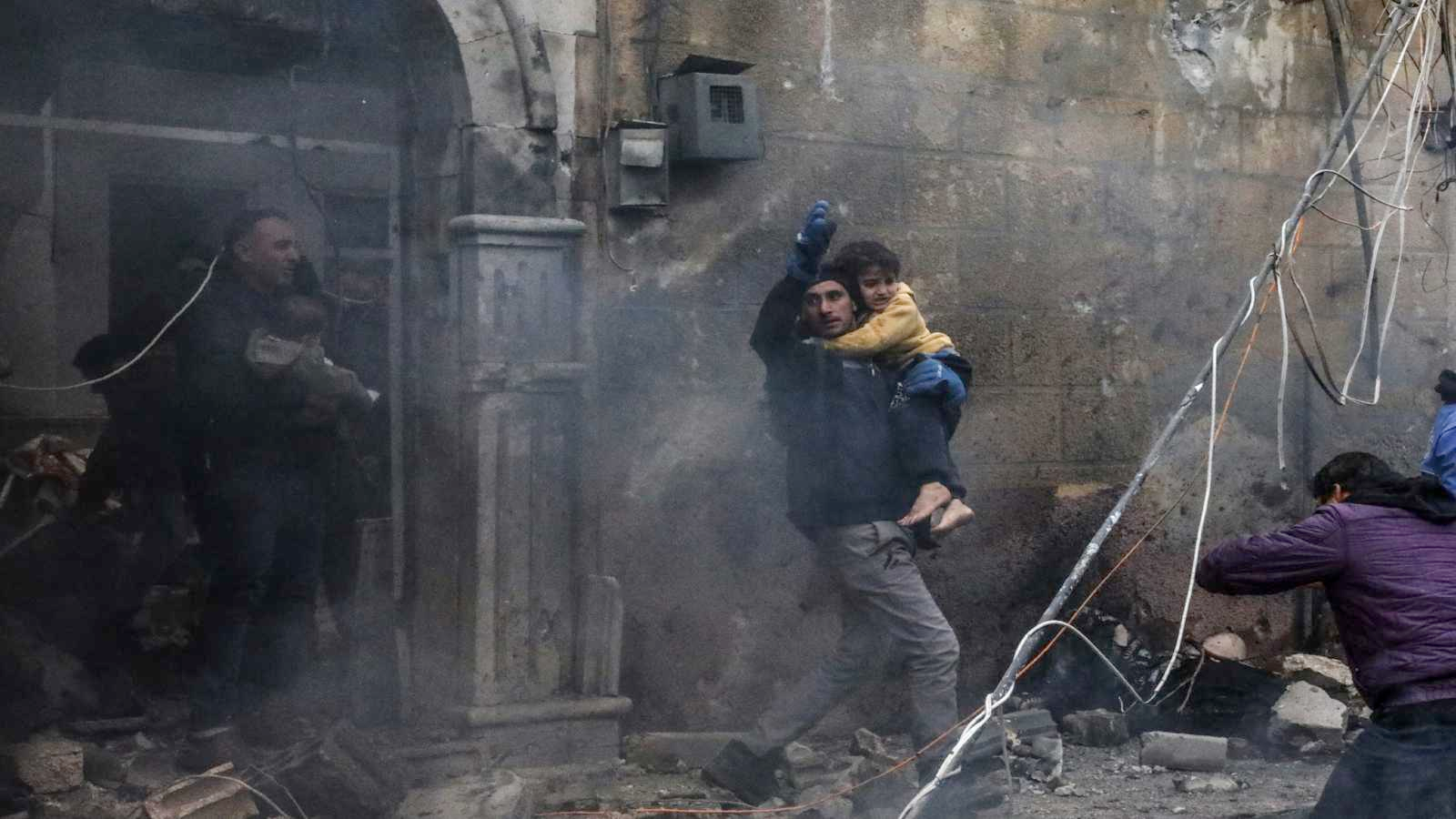
Bombings in Afrin, Azaz and a village near al-Bab claimed at least 18 lives this weekend.
Three car bombings struck Turkey-occupied northern Syria on Saturday and Sunday, killing at least 18 people, including at least four children. More than 60 people were believed to have been injured in the three blasts.
The first blast occurred in the historically Kurdish city of Afrin on Saturday, killing eight and injuring 27, according to Syria’s White Helmets.
A subsequent car bombing rocked the town of Azaz on Sunday, killing four, including one 12-year-old girl, and wounding more than 20. A third explosion, also a car bomb, reportedly killed five members of the Turkey-backed Free Syrian Army (FSA) at a checkpoint in the village of Um Shakif in northern Aleppo province, according to the Syrian Observatory for Human Rights (SOHR).
Video of the bombing in Azaz circulated on social media on Sunday, showing flaming wrecks of vehicles and people carrying the wounded away from the scene.
Car bombings in Turkey-occupied northern Syria are relatively regular, but reports that children had been killed and wounded in the latest attacks drew renewed condemnation. Last week a separate, fourth bombing struck a local police checkpoint at a roundabout outside Afrin city, wounding four, according to SOHR.
Mark Cutts, the United Nations’ deputy human rights coordinator for Syria, slammed this weekend’s bombings of civilians in a series of tweets on Sunday. UNICEF’s representative in Syria, Bo Viktor Nylund, urged all parties in the conflict to protect children from violence.
Turkey’s Defense Ministry accused Kurdish-led forces of carrying out the twin bombings on Sunday.
Neither the Kurdish-led Syrian People’s Protection Units (YPG) nor its political affiliates have so far publicly commented on the latest incidents.
Cells believed to be connected to the YPG have been suspected of a number of similar bombings in the past. Syrian Kurdish officials have denied affiliates’ responsibility and condemned some previous attacks.
However, the commander of the Syrian YPG and wider US-backed Syrian Democratic Forces (SDF), Mazloum Abdi, did not deny a connection to the bombings during an interview with the International Crisis Group last year.
The SDF accuses Turkey of continuing to violate cease-fire agreements brokered separately by the United States and Russia last year around Ain Issa at the M4 highway. Shelling from the Turkish-controlled side was reported again on Sunday.
The 2019 cease-fire resulted from Turkey’s offensive incursion against the YPG along Syria’s northeastern border with Turkey. Ankara accuses the YPG of being inextricably linked with the Kurdistan Workers Party, or PKK, which has waged an intermittent insurgency against the Turkish government since 1984.
Turkey’s military, aided by Syrian opposition fighters, previously took control of the Kurdish enclave of Afrin in 2018, leading to a mass exodus of the local population. FSA groups have also been accused of widespread crimes against civilians, including murder and kidnapping, in Afrin.
Officials with Syria’s Kurdish-led administration have publicly vowed to retake Afrin, though no such operation appears feasible anytime soon.
Elsewhere in Syria, a person was reportedly killed when SDF members opened fire in the city of Hasakah. Hawar, a news agency seen as sympathetic to the YPG, reported that SDF forces came under fire at a checkpoint before returning fire, allegedly killing a member of the Syrian government security services.
Syria’s state SANA News Agency said SDF members fired on protesters in Hasakah, killing one and wounding four. Neither claim could be independently verified by Al-Monitor.
Both the Kurdish-led administration and the US-led military coalition against the Islamic State, which has backed Syria’s YPG since 2014 and the SDF since its inception a year later, have said the regime of Syrian President Bashar al-Assad has sought leverage with Arab populations under SDF control to undermine Kurdish-led authorities.
A series of assassination attempts, some successful, have plagued officials with the Kurdish-led administration, particularly in the country’s eastern Deir ez-Zor province. Islamic State sleeper cells are suspected of carrying out many of the attempts.
 Eurasia Press & News
Eurasia Press & News



